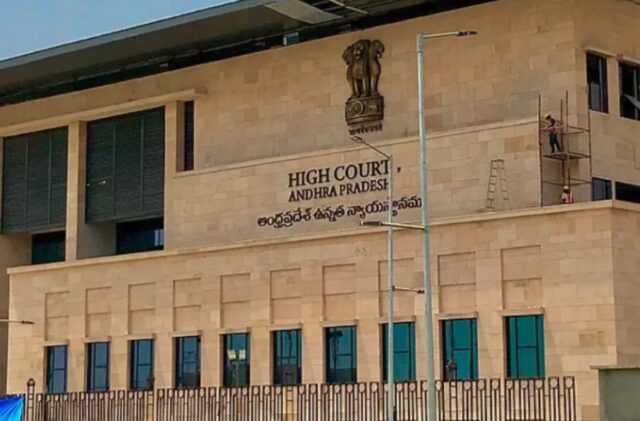The Andhra Pradesh HC, on 25th November 2022 passed an order that mutation orders must be made on the basis of possession & not based on title deed, when the title itself is contested. This was seen in the case of Dr. P. Pranjali v. State of Andhra Pradesh, Writ Petition No. 1198 of 2022, decided by the Coram of Honourable Shri Justice Ravi Nath Tilhari.
FACTS OF THE CASE
The petitioner had filed the petition for the issuance of the writ of Certiorari quashing the impugned mutation proceedings that take place before the Commissioner as illegal, & for heading the Commissioner to cancel the mutation order issued & to restore the petitioner’s name in the relevant records.
The case of the petitioner was that she was the widow of one Mohan Reddy, who was the final owner of a building. In 2006, Mohan Reddy made a registered gift deed in favour of his brother, Babu Reddy, making him the final owner of the building. However, after the death of Babu Reddy, Mohan Reddy rescind the gift deed through a revocation deed made in 2010. The petitioner lay claim that since the Commissioner didn’t have knowledge of the extant of the revocation deed, the same led to wrong mutation order in favour of the 3rd respondent – the wife of Babu Reddy.
The 3rd respondent argued that by uprightness of the gift deed, Babu Reddy had become the owner of the whole building & that the gift deed could not be revoked by the donor after the death of the done.
Finding out that it was not the discernment of the title of the property which was in issue before the HC, the Court held that the legal proceedings before the Commissioner in the present nature were for the use of collection of property tax & that such legal proceedings couldn’t be for discernment of title. The court appended that any discernment of title shall be of no legal effect on title of the rightful owner of the property if such discernment is made in mutation proceedings.
Justice Ravi Nath Tilhari, relied on the SC decisions in H. Laskhmaiah Reddy & Others v. L. Venkatesh Reddy, (2015) 14 SCC 784 & Municipal Corporation, Aurangabad v. State of Maharashtra & Another, (2015) 16 SCC 68a9, both of which determination held that mutation entries don’t convey or douse any title & that such entries are relevant only for the use of collection of land revenue. The Court also placed reliance on the Allahabad HC determination in Kalawati v. Board of Revenue & Others, AIR 2022 CC 1814, which held that a writ petition may be amuse against the orders passed in mutation proceedings when mutation has been directed not on the justification of possession or on the justification of some title deed, but after getting into questions relating to dispensation to succeed the property, touching the merits of the rival claims.
“It is only in the case of undoubted document of title that mutation can be made based on the title deed, but where it is a challenged case of title based on so many documents, as in the present case, the Commissioner had no jurisdiction to hold the gift deed dated 14th November 2006 as valid & its cancellation deed dated 7th September 2010 as contrary to rule… The impugned order of mutation in favour of the 3rd respondent could not be legally passed based upon title in view of the gift deed dated 14th November 2006. The order is passed not on the grounds of possession but on the title deed with respect to which there was contest,” said the Court.
JUDGEMENT
Therefore, the HC ordered that the Commissioner shall mutate the name of the petitioner in its records, admonishing that such mutation order shall not have the effect of any pronouncement of title in favour of either party, which title shall be decided only by a competent court of law.
“PRIME LEGAL is a full-service law firm that has won a National Award and has more than 20 years of experience in an array of sectors and practice areas. Prime legal fall into a category of best law firm, best lawyer, best family lawyer, best divorce lawyer, best divorce law firm, best criminal lawyer, best criminal law firm, best consumer lawyer, best civil lawyer.”
JUDGEMENT REVIEWED BY YAKSHU JINDAL.


